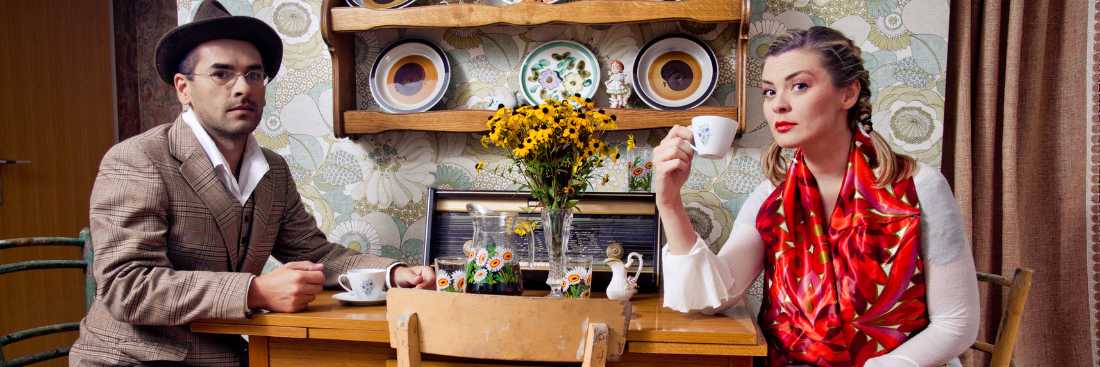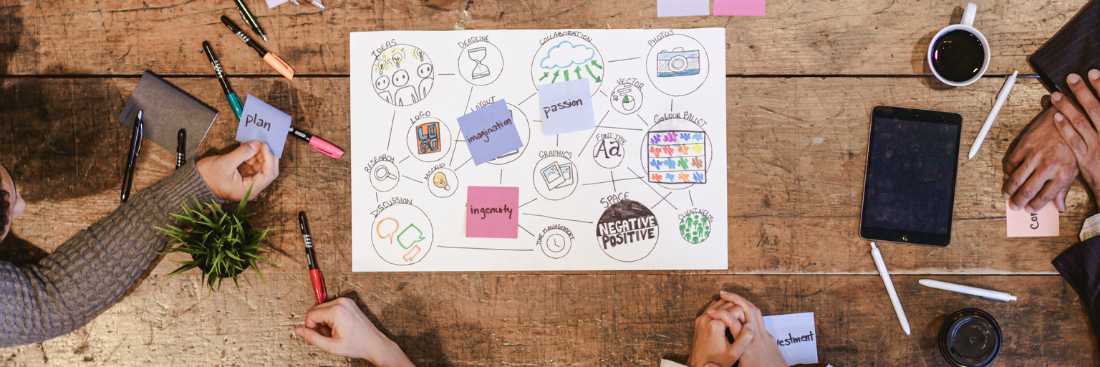
Defining Relationship Roles: Escaping Relational Fuckery
Relationship roles are rarely explicitly defined- most couples fall into roles that draw from the best & worst of their family histories. Those roles aren't reviewed strategically, and are only discussed when frustration or resentment trigger an argument (or ongoing conflict). Most of these challenges are created by poorly defined or disputed roles.
Mostly when people speak about relationship roles, they're referring to domestic logistics: The Who-Does-What in the household. That's rarely the actual issue!
When I work with folk in couples therapy, the ACTUAL issue is usually;
- differing expectations of relationship roles
- how logistical roles are divided, and
- interactional patterns
Defining Relationship Roles
The words "relationship roles" are used in many different ways, for this piece I will be using the following definition;
"A socially defined pattern of behavior that is expected of a person who occupies a certain social position or belongs to a particular social category." Springer.com
A role only exists in relation to another person/people.
That means that relationship roles change depending on who we're with, our interaction, and our context.
For example, with my Mum my relationship role is 'daughter', with a client I'm a therapist, and in a shop I'm a customer. All those relationship roles come with expected patterns of behaviour that are defined by a combination of contextual influences, lived experience, and the person we're with.

What are the Elements of Relationship Roles?
In a couples therapy setting I am primarily wanting to identify; is this role functioning effectively? And are all the participants happy with the arrangement?
Elements of relationship roles include;
- What's the title of this role?
- What's the function of this role?
- Who holds responsibility for this role?
- Is this an agreed role?
- Are we aware of the dynamic this creates?
- What are the specific behaviours & expectations of this role?
- Which activities do we expect for this role?
- What are our agreed minimum standards?
- What's the setting where this role takes place?
- Is this role effective for us?

Unpacking the Categories of Roles in Relationships
There's no definitive way to look at categories of relationship roles, or even the roles themselves. It will always depend on the framework chosen.
For example choosing an hotel organisational framework provides team roles such as "Chef", "Housekeeper", and "Events Manager", a framework of Jungian archetypes brings symbolism to roles like "Magician", "Lover", or "Rebel", or a familial setting suggests the roles of "Parent", "Sibling" and so on.
Each framework is pre-populated with roles so the crucial part of defining relationship roles is to have clarity on which frameworks you're choosing, why you choose them, and the built in flaws & strengths of each model.
Let's look at some of the more common categories of relationship roles;
How Context Informs Relationship Roles
Relationship challenges are found in the dynamics BETWEEN people. They are the result of your differences in culture, family, lived experience, intersections in identities, and other contextual elements that have influenced each of your personalities and approaches to life.
We could frame your conflict as being about relationship roles, but without acknowledging the CONTEXT of your lives we're being dangerously reductive. Suggesting that relationship strategy will change your circumstances is bullshit.
In couples therapy the work we do to define relationship roles always begins with a review of the bigger picture-
We consider contextual influences like;
- Systemic influences
- Social identities & intersectionality
- People
- Personal factors
- Transitional events
Stepping back to do some critical thinking about where this issue truly came from requires curiosity, generosity, and patience. It's definitely possible (and important!) to negotiate those relationship roles, AND crucial to name that those contextual influences will remain as constraints.
Like, you can redefine your logistical roles to have equal domestic labour, AND you will still experience the influence of gendered roles because of the structure of the world.
The most important factor is your understanding of those differences and contextual influences, and the way you CHOOSE to navigate them together.

9 Steps to Explore & Define Relationship Roles
Defining relationship roles is one of the trickiest parts of modern relationships.
That's because deciding not to play 'traditional' or predefined relationship roles means that EVERYTHING needs to be discussed, designed, and continually reviewed. Ideally you're checking in on roles annually, and continally responsive to changes in circumstances.
Here are some reflection prompts for you to explore the roles in your relationship;
That takes ALOT of effort!
If you find that every time you have this kind of conversation with your partner/s it slides into conflict (or remains unresolved), that's a pretty clear indicator that it's time to go to some form of couples therapy. These are the kinds of conflicts that can be easily resolved early, but lead to bitterness, frustration, and resentment when left for too long.
Here are some reflection prompts to help you explore & experiment with relationship roles;
As discussed above, contextual information is vital to getting perspective on relationship roles.
Explore with your partner which of these influences impacts your relationship and the roles you each play, and talk about whether you want to continue that, change that, or stop doing it that way.
Developing an Action Plan
This is an ongoing experiment, not a one-and-done. That means that over time as you develop your understanding of your relationship roles, you'll become more discerning; you'll notice more data, and become aware of even finer distinctions within & between roles.
As you get curious with yourself & your partner/s you can develop an iterative action plan for how negotiate relationship roles that includes;
- My Roles; responsibilities, expectations & behaviour
- Their Roles; responsibilities, expectations & behaviour
- Agreements; agreements about feedback, appreciation, effectiveness
- Shortcuts; how you'll communicate with each other
- Your Village; how you manage outsourcing & support proactively
- Experiments; specific experiments in your relationship roles
- Iteration; a plan for when you'll review & assess roles
You can do that by talking it through with your partner/s using the headings above to guide you.